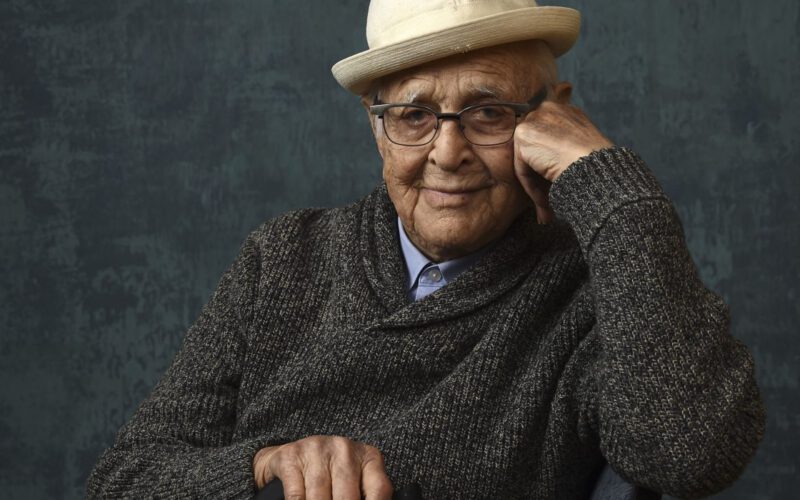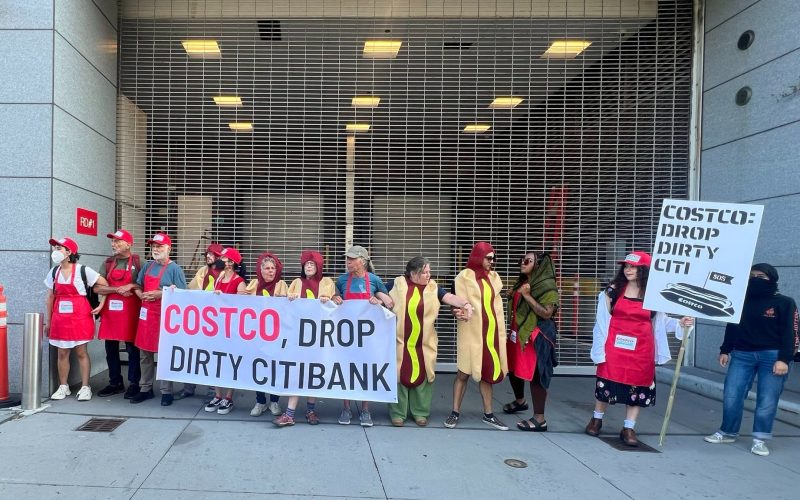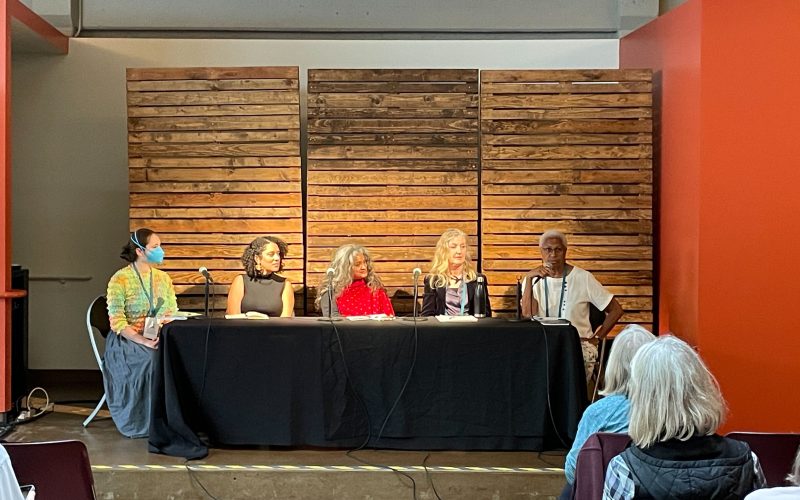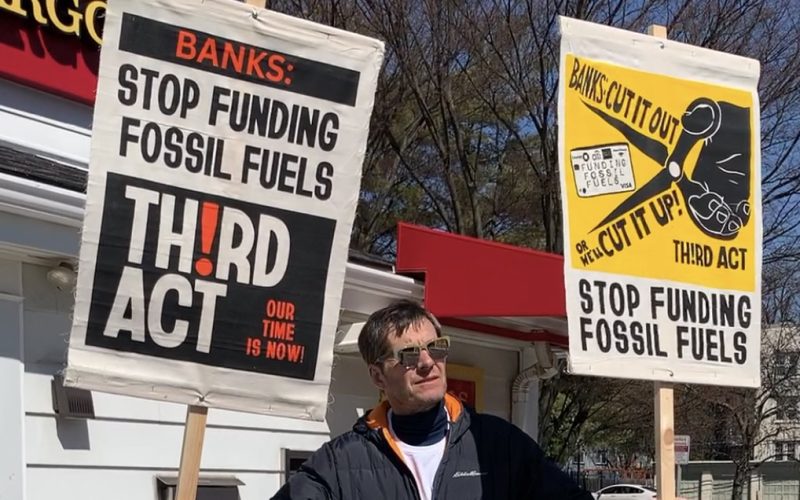From Atlanta to Philadelphia to Phoenix to Reno, Third Actors, climate leaders, and activists rallied together to protect our democracy. Bill McKibben writes about the swing state tour experience--all the people he met along the way and all the conversations and good trouble they shared.
Friends, here’s a report from the back half of the Silver Wave Tour. I hit Montana and Michigan in September, but this month was the most intense, with wonderful organizing from all the local working groups, not to mention the Third Act staff. (I’m adapting this from my newsletter)
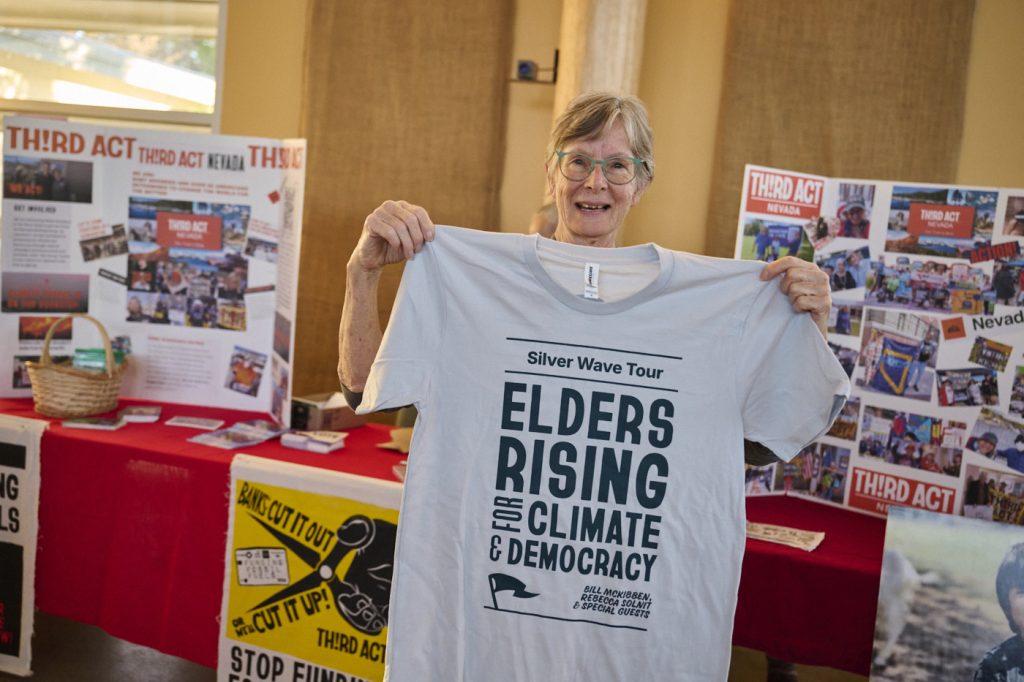
One of the blessings of growing older is that—if you’re fortunate—you’re also growing less judgmental. With any luck you’ve come to understand that the world can be hard, and so to have some affection for your fellow travelers through it. Which is another way of saying: it was sweet to spend a sunny Tuesday morning in a not-so-good section of Philadelphia, knocking doors to turn out the vote.
I’d gotten to town the night before, coming from Atlanta, where we’d had a wonderful night with the local TA group (and where I’d gotten to spend a memorable afternoon at the Civil Rights Museum, reflecting on our colleague Heather Booth and on older voters in general. You can read my report for the New Yorker here).
Anyway, the visit to Philadelphia began with a big rally at the Arch Street Meeting House in the center of the city. We heard from a dynamic young pastor and city councilor named Nicolas O’Rourke, and from two young women studying at St. Joseph’s, and then I rambled for a while about the stakes of this election—a knife’s edge chance between electing a dangerous authoritarian or choosing our first woman president. The main job was just to psych people up for the real work, which at this late stage is nothing but turn-out.
And so we gathered, fifty or so gray-haired activists, in Clark Park in West Philly the next morning. We stood around a statue of Charles Dickens as we took our marching orders—each team of two had an app called Minivan that gave us our catalog of doors. The morning’s canvass had been organized by the non-partisan Environmental Voters Project, which has a big list of ‘low-propensity’ voters who can be counted on to pull the right lever if they make it to the polls. And so we set off.
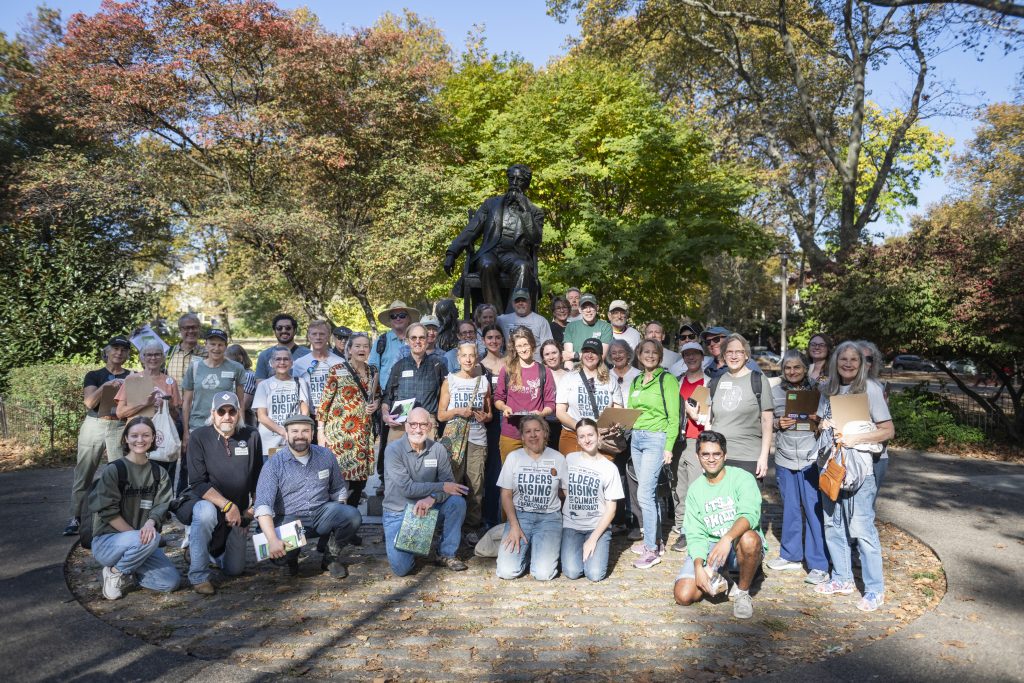
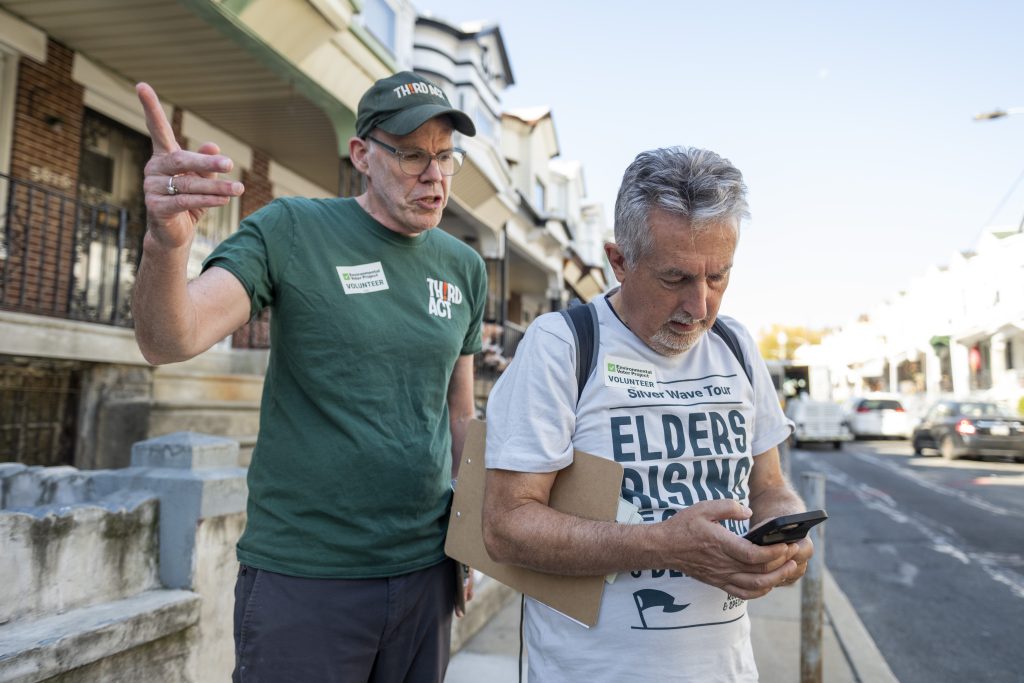
Mike Tidwell, the veteran leader of the Chesapeake Climate Action Network, and I set off through the streets of West Philadelphia. It was morning, so not surprisingly most people weren’t home—the usual routine was to ring the doorbell, wait for a minute, and then print the person’s name on the literature encouraging them to be a “good voter” (apparently, testing shows this kind of ‘social pressure’ actually works) and hang them from the doorknob.
About halfway through, a young woman on our list answered the door. I explained that we just wanted to make sure that she knew how to get to her polling place, at which point she said that was going to be a problem. She pointed to her right foot, where her sock covered a bulge—it was, she explained, an ankle monitor, and she wasn’t actually allowed to go out to the polls because she was awaiting trial.
Now, I imagine that at some point in my younger years, I might have thought: this person could be a criminal, should I be helping her vote? But I’ve lived long enough and attentively enough to understand that just because a young black woman has fallen afoul of our criminal justice system, it doesn’t mean an enormous amount. I’ve spent a fair amount of time in jail (for crimes I’ve been happy to admit) and in the process met a fair number of people who, it struck me, were guilty mainly of being born in the wrong place. I haven’t suspended judgment entirely—I don’t like crime, and I wouldn’t vote for a presidential candidate who had managed to acquire multiple felony convictions. But I sensed that this young woman probably did not have a crack legal team at her command, and anyway she wasn’t running for president—she just wanted to vote for president. So I helped her figure out how to approach the Secretary of State’s office. I hope it works, and not just because it will help Harris—because voting is good. (One thing I deeply admire about older Americans is that for all the opportunities we’ve had to develop real cynicism, we continue to vote.)
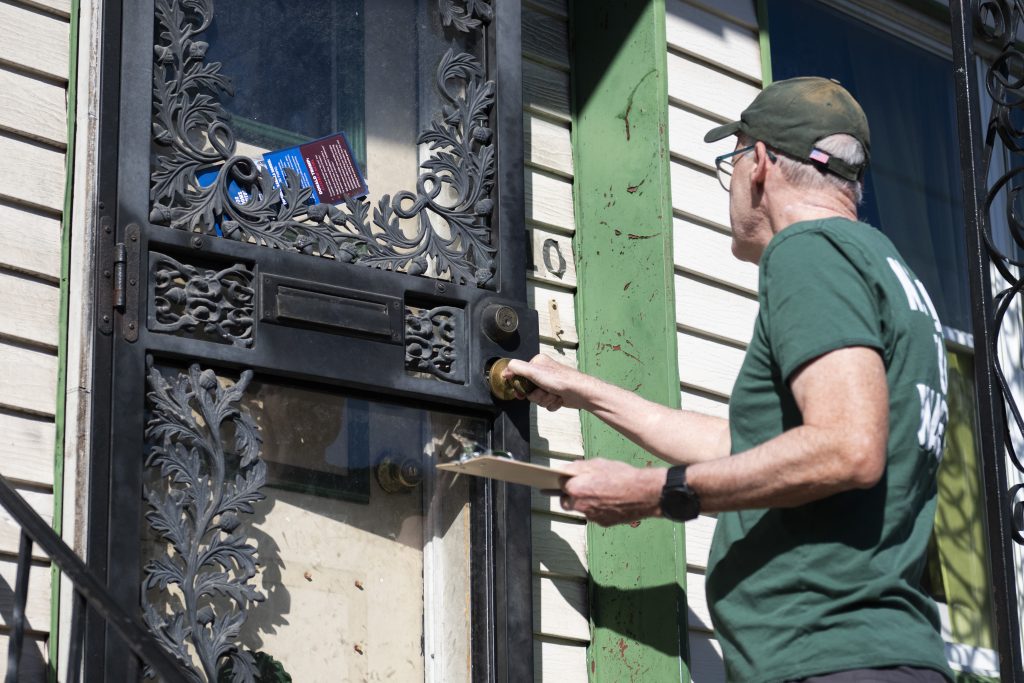
A few blocks later we came to one of our addresses and there was actually someone sitting on the porch. “We’re looking for Janis Merton,” I said (though I’ve changed the name.)
“Oh,” he said. “That name is deceased. I wish you would take it off your list.”
Now, for the first two-thirds of my life, I would assume that he meant Janis had died, and I would have offered my condolences and moved on. If I’d somehow understood that this was a person born a woman who had become a man I wouldn’t have known what to say; raised to be polite, I probably wouldn’t have said a thing, but I might have thought: ick.
But again I’ve been lucky. I’ve had the chance to get to know a fair number of people who’ve transitioned from one gender to another, and in every case it’s been a blessing. The idea that we live in a moment when people are able to connect with something deep inside them, and instead of feeling shame and sadness do something about it—that’s a joy. And one of the ugliest parts of this fall’s campaign is the degree to which the GOP has decided to stigmatize and target those people. The cruelty of the radio ads and the tv spots can take your breath away. As Tim Walz would say, none of your damned business—but to the degree it’s of the public interest, it’s awfully nice that you can love who you want, including yourself. I’m pretty sure this guy was never going back, and more power to him.
We finished up our day’s list and returned our clipboards, and then I got on the plane to Phoenix. Again we had a wonderful evening program, thanks to the folks at Third Act Arizona—among other things it featured Candice Fortin, the organizing director at my old stomping ground 350.org. And Rebecca Solnit was there to headline things, thank heaven, since I was getting a little weary. Some native dancers set the mood; a trio of young people brought it home. We ended by telling everyone to show up the next day to canvass, and a lot of them did.
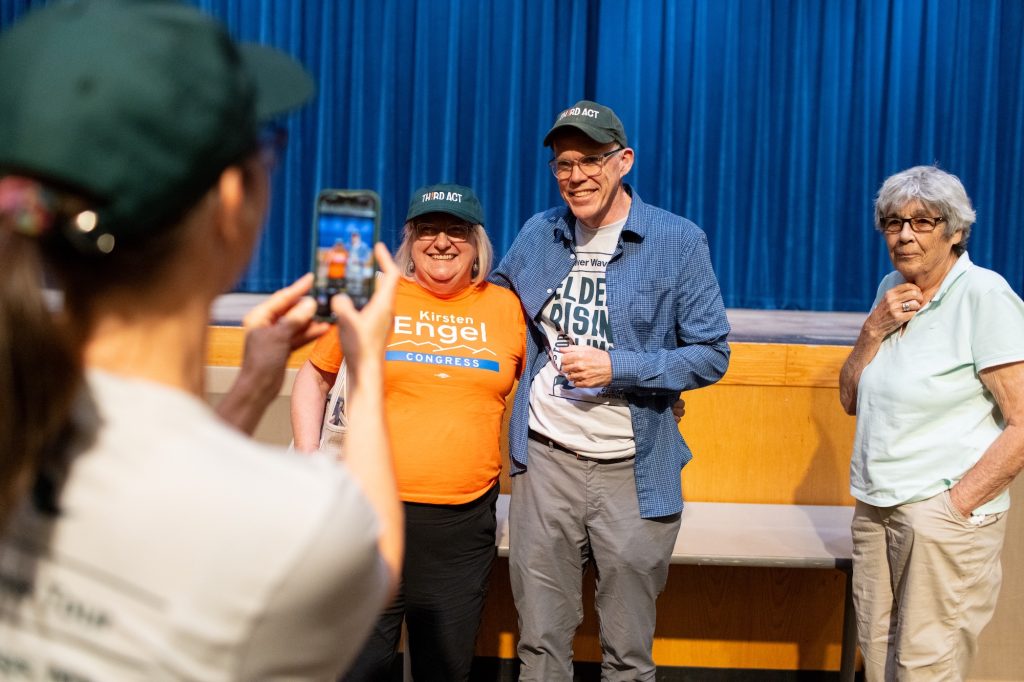
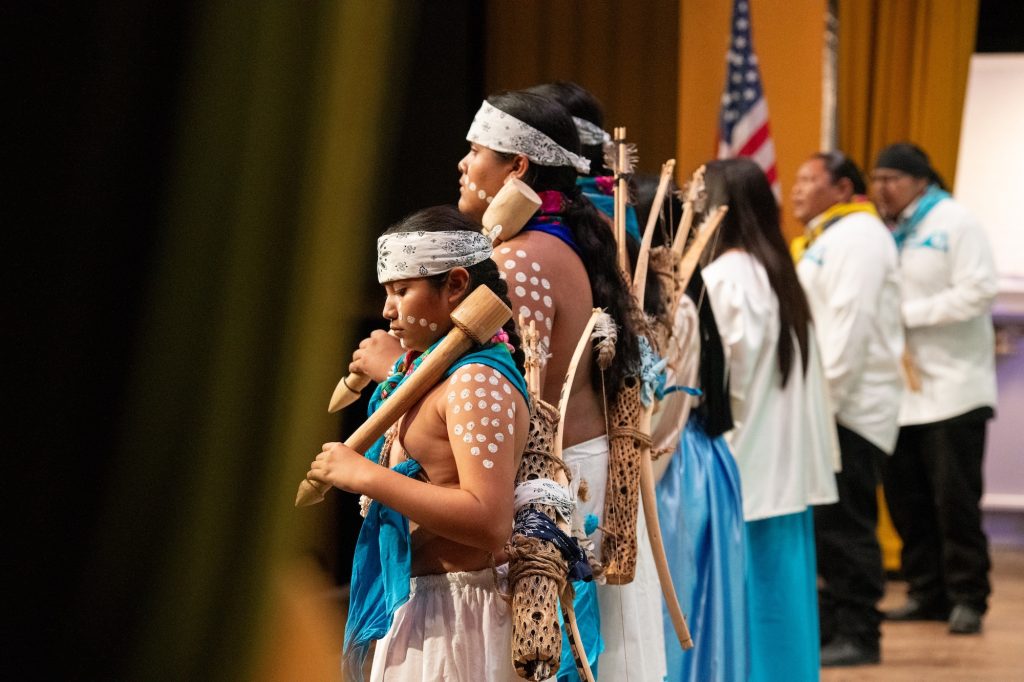
This time the proceedings were organized by Seed the Vote and by La Lucha—the phone app took us across the sprawling Phoenix metro area to the suburb of Avondale, which has almost tripled in population in the first fifth of this century. It’s mostly Hispanic, a pretty solidly middle-class community—we were in a subdivision filled with twisting roads and not-quite-identical houses, each with a gravel front yard (Phoenix has successfully kicked the lawn habit, though there was one unfortunate experiment with astroturf). It was a fairly perfect rendition of the America that’s coming by mid-century, where white people are no longer a majority—the thing that may subliminally drive the MAGA rage. And yet it was so…normal. Pickups, a few of them jacked-up. Fancy doorbells (Ring vs Vivint, with a few SimpliSafe—you notice these things when you’re doorknocking).
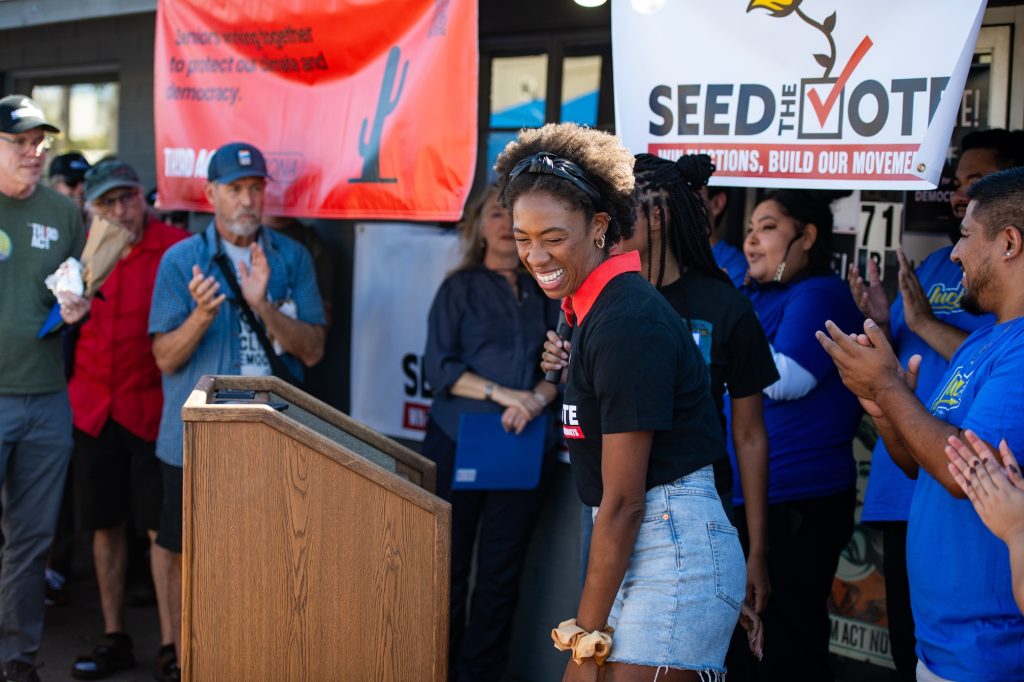
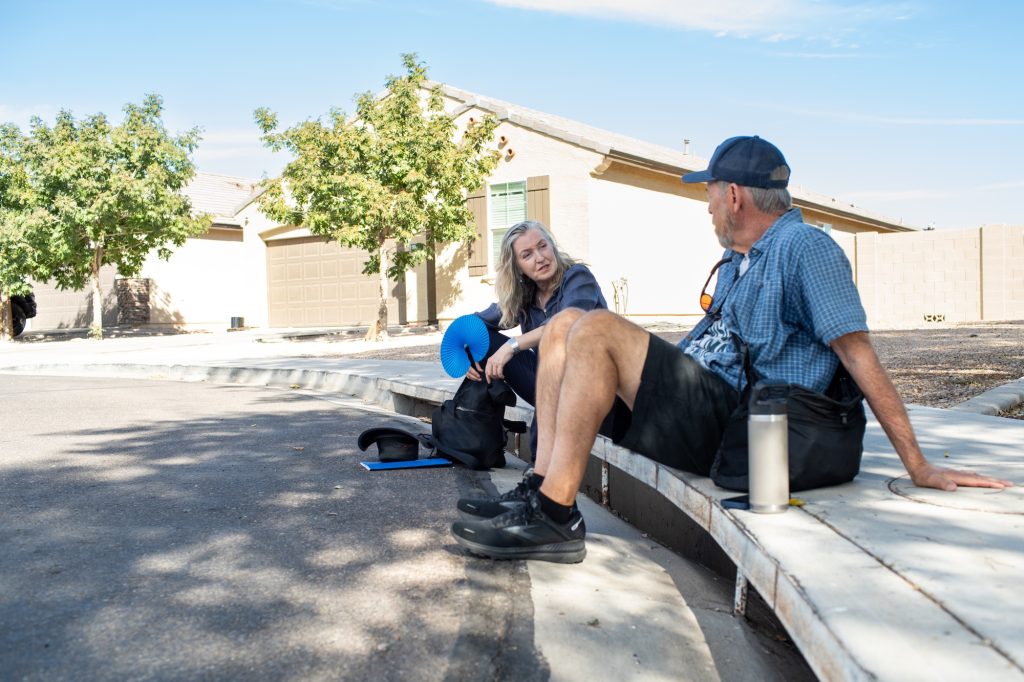
The sun beat down—when we’d left the car it had insisted the outside temperature was 100, and it felt like that. The trees weren’t big enough yet to provide much shade, and I was inordinately grateful when the phone app sent us to the shadier side of the street. People were mostly missing—it was midday—and so, conspicuously, were solar panels. If this were California or Texas (or Vermont) you would have found them on many houses, but so far the Arizona utilities have roundly resisted any real efforts to take advantage of the fact that they are the sunniest city in the country, with the sun shining down 88.5 percent of the time. One would think that the record-smashing summer they’ve just endured—at one point 21 straight days set new daily temperature records, a streak with no equal in this country—might have convinced them. But no. We desperately need four more years for the IRA to roll out, and really step up to the task of changing out the 140 million homes in this country, and we desperately need the great advocacy at Public Utility Commissions that so many Third Actors are now engaged in.
It was good to be outside walking the streets, even in the heat, in part because it meant there was no chance to worry about the polls, and all the other craziness. (While we were out there news came that the police had arrested the gun nut who shot up the local Democratic headquarters, and also the nut nut who set a mailbox on fire last night perhaps to burn up some ballots). Politics used to be kind of fun, but not since 2016—everything seems desperate, especially this gut-wrenchingly close election. But while it’s happening, there’s the chance for everyone to take part: to get out and knock doors, and in the process be reminded what kind of tenuous, noble, important lives our fellow Americans are living. To remind ourselves that one goal of all of this to make those lives a little easier.
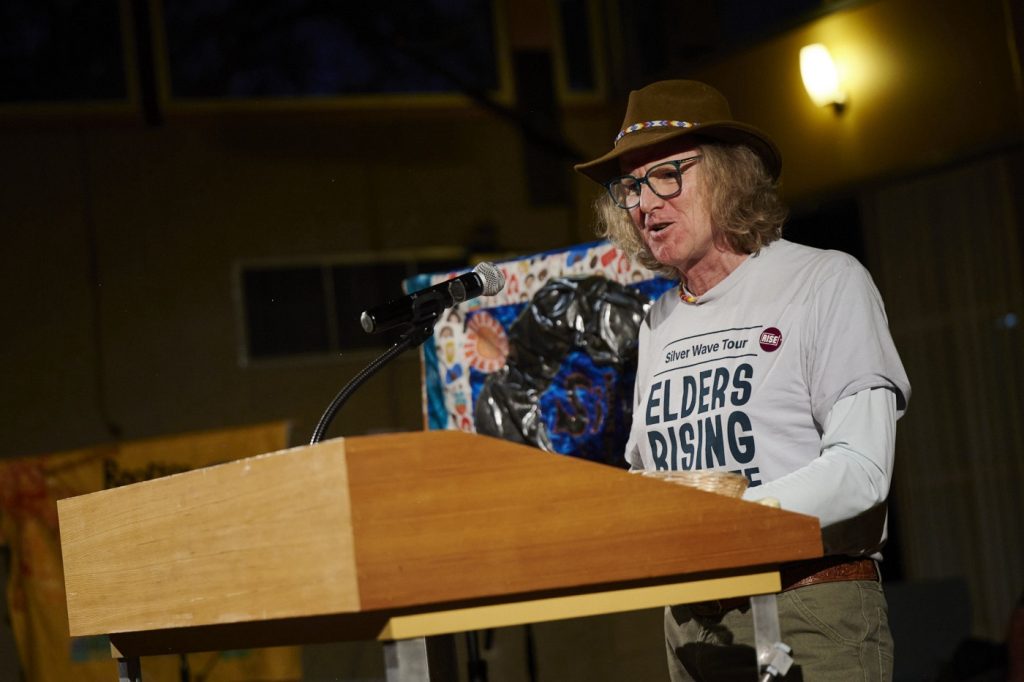
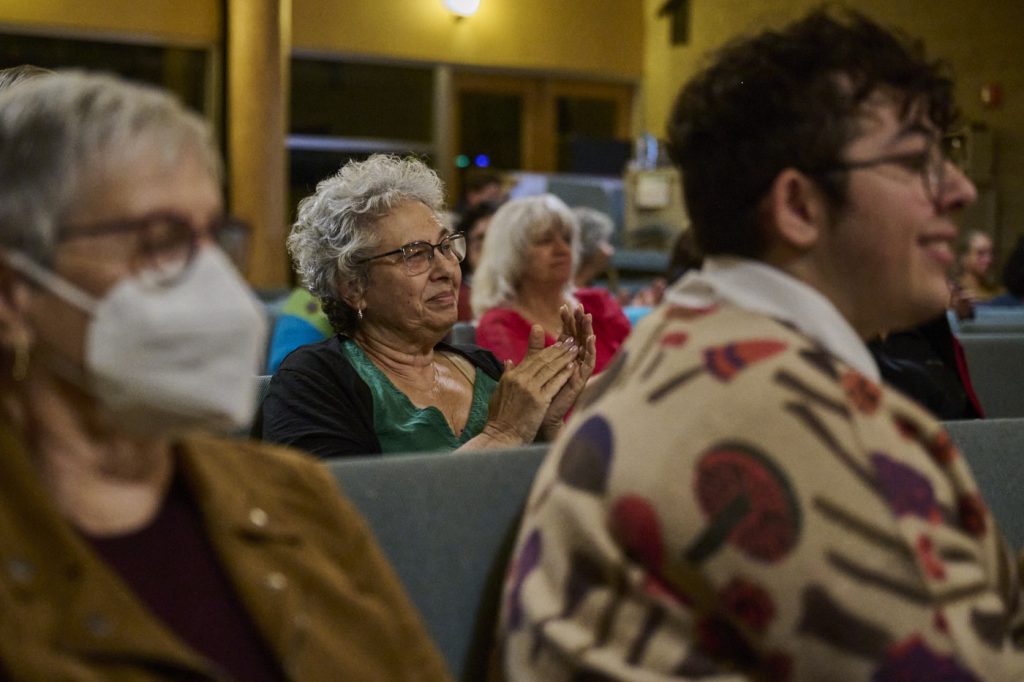
Reno the next night was like coming home–Third Act’s first big electoral effort had come here in the fall of 2022, when we played a real role in helping save the Senate by picking up Nevada’s seat. Our great national organizer B Fulkerson is also the great local organizer here, and so we had a truly beautiful evening at a packed Unitarian church, which featured Secretary of State Cisco Aguilar. Rebecca spoke with great wisdom, reminding us how much of the arc of change we’d seen in our lives, and that this was our chance to move it on.
As a huge passel of canvassers–from Third Act groups in Nevada, Oregon, and California, and our wonderful Bay Area friends from 1000 Grandmothers–set off the next morning, I told them I’d talked to my wife back home the night before and that she’d reported our 7-month-old grandson had learned to give High Fives this week. So I told them what I’ll tell you: if you find yourself weary as this week goes on, just imagine a chubby-cheeked little Vermont boy slapping you on the hand, in thanks for being out there protecting his future. That’s what it’s about!
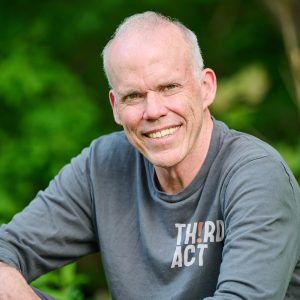
Bill McKibben
Bill is a contributing writer to The New Yorker, and a founder of Third Act, which organizes people over the age of 60 to work on climate and racial justice. He founded the first global grassroots climate campaign, 350.org, and serves as the Schumann Distinguished Professor in Residence at Middlebury College in Vermont. In 2014 he was awarded the Right Livelihood Prize, sometimes called the ‘alternative Nobel,’ in the Swedish Parliament. He’s also won the Gandhi Peace Award, and honorary degrees from 19 colleges and universities. He has written over a dozen books about the environment, including his first, The End of Nature, published in 1989, and his latest book is The Flag, the Cross, and the Station Wagon: A Graying American Looks Back at his Suburban Boyhood and Wonders What the Hell Happened.
